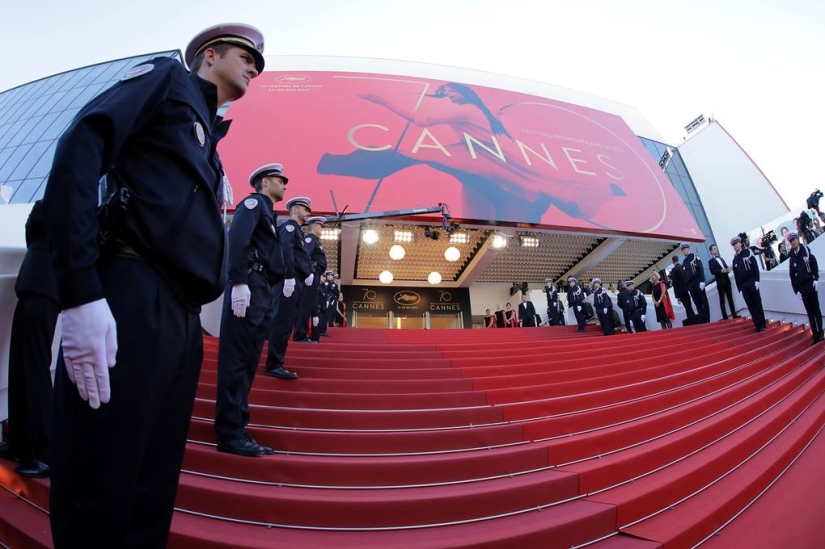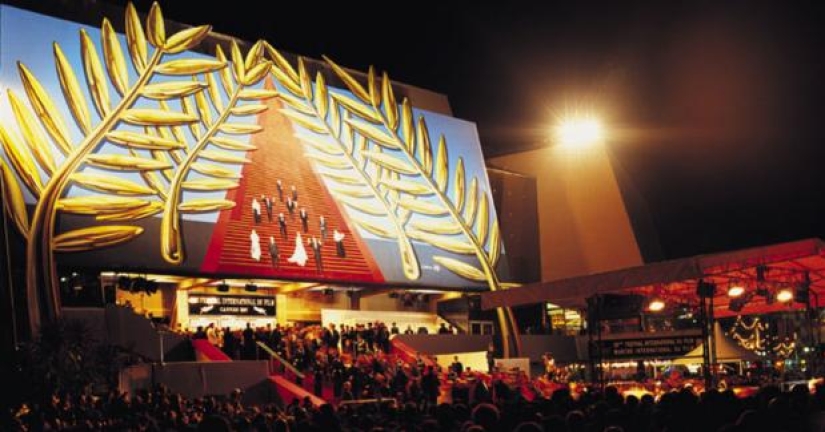Why no one likes festival cinema: the opinion of a film critic
Categories: Celebrities | Cinema | Culture | Europe | Holidays and Festivals | World
By Pictolic https://pictolic.com/article/why-no-one-likes-festival-cinema-the-opinion-of-a-film-critic.htmlHave you noticed that no one (except the directors themselves) likes the films presented at the Cannes Film Festival and the like? Although, it would seem, the tapes marked with a prestigious award should at least arouse the interest of the audience.
Film critic and journalist Maria Kuvshinova tried to explain why this is happening. We hope that after reading this text, all your questions will disappear.

Those who are fond of cinema may have noticed that a few years ago the category "producer country" disappeared from the catalog of the Cannes Film Festival. And this is understandable, because the concept of "director-author" is mainly promoted here: there are no Italian, Swedish or Latvian films, there are — Wilma Labate, Ingmar Bergman and Laila Pakalnina.
In addition, the financing of modern festival films takes place in such a way that there is simply not enough space in the catalog to list all the countries that took part in it. And it is almost impossible to determine the main investor in this case, because often money is given for production in one country, for banking details in another, for filming in a third, and so on…

In the current realities, a European producer is a clerk with papers who is in eternal search of grants and financial support. This is no longer "Dino de Laurentiis with a cigar in his teeth and his feet on the table," Maria Kuvshinova is sure. Now the main task of the producer is to keep the books and make applications. Especially successful in this field, specialists produce the most "gray" films, which massively fill the slots of the programs of international festivals and leave almost no chance for bright projects to break out.

But once the festival movement was an exhibition of the achievements of cinema. Even the name of one of the first festivals — Venice — sounds like "mostra", that is, "exhibition". Then the directors did not shoot "arthouse" or "festival cinema", but works that cling to the living. For example, the tape "On the last breath" (1960) during the debut show in France was watched by more than 2 million people.
Now the festival cinema is evaluated not by the reviews of the audience, but by the opinion of officials and professional "selectors".
The system of European film funds itself began to form at the end of the last century, when the attention of viewers was first "captured" by television, and then by products from Hollywood. Then various countries decided to support cinema as much as possible, which is part of their culture and national identity.

The most interesting and effective system of film funds was built in France. The National Center for Cinematography and Animation takes into account the interests of all market participants and distributes public funds for the creation, rental and promotion of films, including within the framework of the Cannes Film Festival.
However, in recent years, something has changed a lot in the atmosphere of this event. It seems that the French, taking advantage of the recognition and prestige of the Cannes Festival, take to the competition mainly only those films that have a local distributor. And although this is not officially prohibited by the rules of the film forum, it is obvious that the organizers contradict the spirit of the movement, and most of the films claiming awards are already planned for distribution in France.

On the one hand, the French can be understood, because they have made great efforts to develop such a large-scale, balanced project. And then suddenly some Netflix appeared, which spits on all the "Cannes laws" and does not observe the months-long pause between the release of the film in the cinema and the release on the Internet. By the way, because of this, several films of the American online platform, for example, "Roma" directed by Alfonso Cuaron, which was positively evaluated by the audience, did not get into the festival program last year.
And since there are no ways to combat this, the only thing left for the organizers is to ignore the outside world, pretending that French culture is above all, and the palm branch on the logo is a sign of quality, which should be enough for the audience to believe that they have a masterpiece in front of them!

And if a "masterpiece" produced with the support of French film funds seems too tedious and incomprehensible to you — it's not a bad movie, it's you who don't understand high art. And critics who are present at the event will definitely find words in support of such projects, because they also participate in this game. Simply put, festival cinema resembles a closed production cycle, designed for critics, selectors and investors, and not for ordinary viewers.
Therefore, if you yawn while watching another festival masterpiece, do not scold yourself for being stupid. After all, now at such events you will hardly see artkino, which was filmed ten years ago. Having received guaranteed support and a financial crutch, the cinema has practically forgotten how to walk on its own.
Keywords: Cannes Film Festival | Cannes | Film Festival | Premieres | Films | Masterpieces
Post News ArticleRecent articles

It's high time to admit that this whole hipster idea has gone too far. The concept has become so popular that even restaurants have ...

There is a perception that people only use 10% of their brain potential. But the heroes of our review, apparently, found a way to ...
Related articles

In a world of many unusual and even strange buildings, but if you rank them, the Palace of Bubbles (Palais Bulles), created by ...
Lights, camera, fashion! From Monica in Cartier to Bella in Schiaparelli, we look back at the film festival’s most memorable looks.

On Wednesday, May 14, the 67th Cannes Film Festival opened in the south of France with the film Princess of Monaco by French ...

New Year's is a time to surprise and delight loved ones not only with gifts but also with a unique presentation of the holiday ...